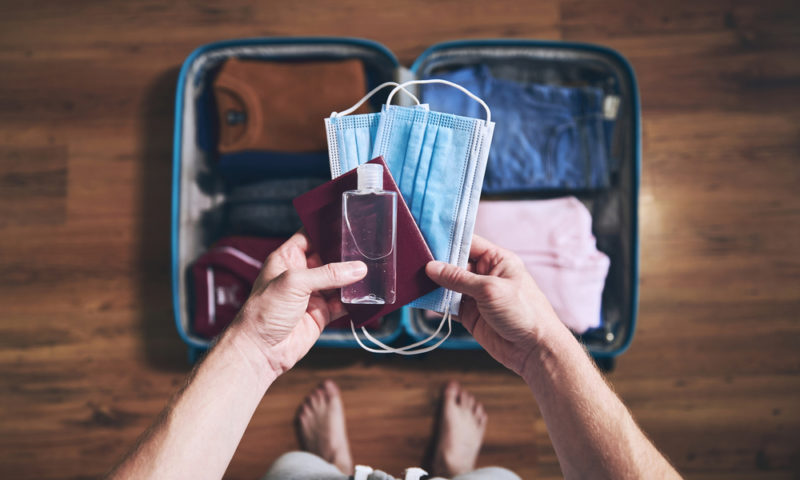As association pros head back on the road, it’s important to understand that things won’t be exactly as you left them
Plenty of industries have missed business travel over the past 18-plus months. But with associations reliant on making connections at meetings, conferences, and other gatherings, they might be feeling it more than most.
As in-person events pick back up again in this new normal, you might be traveling for the first time in quite a while. And getting back on the horse won’t necessarily be easy.
Nonetheless, people are raring to go. An American Express Travel survey found that 64 percent of respondents were so ready to travel again that they would give up a month of social media to do so.
If you do travel, what should you expect? A few thoughts worth keeping in mind:

Be ready for a mix of new and old rhythms. Flying right now might feel a bit disorienting, but the process is functionally the same … with some updates. That was something Associations Now’s publisher, Karl Ely, CAE, learned during his own return-to-business trip, which he wrote about in June. “Hands free at precheck: Slip in your ID and away you go,” he recalls. “No more license exchange with TSA, and the agent did not require me to show my ticket. That’s an improvement born of necessity.”
Don’t forget your vaccination card. Although proof of vaccination is not required to board most forms of transportation, some public venues (and some meetings) are asking people to verify their vaccination status. It’s even getting picked up at airports, as the security screening program Clear begins to account for it in its offerings. A New York Times piece in June notes that many venues are expecting attendees to carry either proof of vaccination or proof of a recent negative test. “With some destinations, cruise lines, and venues already requiring travelers to provide proof of vaccination against COVID-19, keeping that record is key,” writer Concepción de León explains.
Be aware of inconsistent international travel regulations. If you’re trying to visit another country as part of your travels, now might not be the ideal time—much of the world is in “wait and see” mode. The Global Business Travel Association (GBTA) warned in recent weeks that the inconsistency of border reopenings could dampen any recovery. However, the situation is gradually changing: Recently, Americans were allowed to visit Canada for the first time in more than a year. In comments to Travel Weekly, GBTA CEO Suzanne Neufang emphasized that the industry is aiming for “risk management versus risk elimination in travel.”
Don’t expect rental cars to be easy to find. If you’re flying somewhere, you might be taking an Uber or public transit when you get on the ground, thanks to a rental car shortage that has been going on since at least this spring. (One side effect: the growth of peer-to-peer car-sharing services such as Turo, which have gained popularity in recent months.) This might be a problem for regular business travelers, whose schedules might depend on being able to drive to where they need to be.
Look for a stronger focus on environmental impact. Some travel concerns that were gaining momentum before the pandemic are growing in popularity. A recent study from the marketing resource WARC [subscription] reported that sustainability concerns are increasing—which might lead some travelers to avoid flying, depending on the trip. “The pandemic has given people time to re-evaluate their relationship with travel, and they are now more mindful of the environmental impact,” the report states. A recent Deloitte survey suggests that half of respondents plan to optimize their business travel policies to limit their environmental impact, through measures such as cutting back on frequency. That might also mean a more regional focus for in-person connections.
Don’t be surprised if service is slower than usual. As tough as your association may have had it during the pandemic, your industry’s challenges might pale in comparison to those of the travel industry. The WARC study reported that airlines, hotels, and other arms of the travel industry ran into a trust deficit that many are not yet working to resolve. “During COVID-19, consumers are clear that companies must put people first and profit second,” the study states. “And yet, the sweeping perception among consumers is that the travel industry’s response was precisely the opposite—leaving many consumers feeling betrayed.” The travel industry is working on this, but one challenge it might face is the tight economy and staffing shortfalls—something particularly visible with airport concessions.
source:https://associationsnow.com